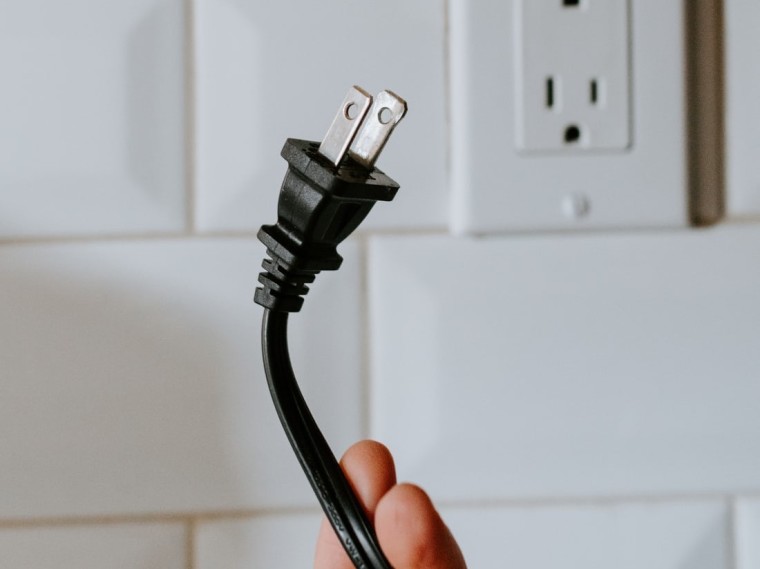
Convenience and comfort
We often consider the measure of development in the world as a matter of having the things that can make life a little bit easier. We can order anything from the internet to be delivered to our houses, we have takeaway food so we can eat on the go, many of us have our own cars so we can take ourselves anywhere we want.
As we learn more about the harm that plastic can have upon the earth and the implications that driving everywhere has upon our health, it makes you question whether our so-called notion of development is truly development at all.
For a fleeting moment our busy life is eased because we can grab some sushi in a plastic container, eating it in our car while driving to our next meeting.
This example highlights the convenience and comfort of our modern lives. The convenience of everything we think we want at our fingertips. The comfort of being told we can choose anything we want, to make all parts of our lives serve ourselves and never really be stretched for anything.
However, consider whether these ideas of development, convenience and comfort are really a reflection of the lives Jesus calls us to. What does Jesus call us to? Making disciples.
Should we really measure the development of the world by the technological advancements that simply make life more convenient and comfortable, typically for people who already have so much privilege, accessibility and agency?
Slip away to a quiet place
I think Jesus might consider development as something else – that internal development trumps external development. And I think the way he worked in his ministry was hardly convenient at all – think of the many times he slipped away to a quiet place when there were so many miracles to perform and people to teach!
For all of the so-called development in the world, are we really any better for it as people? Take the earlier example of eating quickly on the go between meetings – this creates no space for rest, produces waste and is really just road-rage waiting to happen.
Despite what hustle culture says, we need so much more rest than we often allow ourselves. I think it is because rest can be so inconvenient that we often avoid it. Any time that you unplug from the world, make yourself unavailable to a text, call or email, you really inconvenience the people who want to get in contact with you.
Furthermore, if you actually can manage to slip away to a quiet place, how uncomfortable is that?! With nothing to fill your ears, occupy your hands or entertain your eyes, being alone (with God) can be somewhat uncomfortable.
Having to deal with your thoughts, pain, past hurts, desires for the future, current worries and stressors – this can be hard and uncomfortable. Reflecting on ourselves, true and deep reflection, can feel selfish and awkward.
Where transformation happens
But if the Bible makes a significant effort to tell the stories of Jesus taking time to rest, no matter how inconvenient or uncomfortable this was, might we be wise to follow? Because after a busy week, a challenging conversation, a thoughtful message, anything that drains from us or has the power to impact us (so basically most things we do in life) – we truly need time to rest.
And in that place of rest is where transformation happens – or at least begins to. Lately I’ve realised that while I enjoy reading informative articles and listening to interesting podcasts, I often don’t give myself time to properly sit with the material I have received and to process it.
Something that may have been transformational is simply left as unrealised potential. Further to that, regardless of whether you have a book or podcast to process, we absolutely need space to reflect on ourselves, our weeks, our lives, our jobs, where we spend our time and where we want to go.
Whether we are unintentionally avoiding quiet time because it is uncomfortable, or because it is inconvenient to carve out that time in our calendar, it is crucial for us to make that space in order to grow and be transformed. Nothing grows if we ignore it, except bad habits.
The world might push the messages of convenience and comfort in the pursuit of capitalism, but what do we really need?
Seek discomfort
In the past, when I thought about how the disciples were told to leave their lives behind and follow Jesus, I didn’t find it all that inspiring; in fact, it was extremely uncomfortable and scary to do. But when I’ve considered this more recently, the idea of the disciples stepping out of their comfort zones in order to seek Jesus and the transformation in their lives that followed has intrigued me more.
We know that growth doesn’t really happen inside our comfort zones and I think most of us want to grow. If you want to grow and transform, then convenience and comfort aren’t that satisfying for long and can become hindrances.
As followers of Jesus, who want to make disciples and to grow personally, we must seek discomfort. We need to step outside of our comfort zones.
I used to wonder if this conflicted with our faith, thinking that Jesus-followers ought to just keep the peace. But we know that belonging to Jesus looks different to belonging to the world and being set apart as different inherently situates us outside of our comfort zone.
To seek Jesus is to seek discomfort. To be where transformation happens, we need to seek discomfort. And to live out in response to seeking Jesus, being transformed and loving others – this can be uncomfortable.
Thank Jesus for He sent us the Comforter (John chapter 14, verse 26, NKJV) so we won’t be too uncomfortable for long.

Rebecca Hoverd studies law and geography at The University of Auckland and loves writing as a way to communicate with God and to unpack her thoughts. She loves coffee, conversations, and would love to hear your feedback at rebeccahoverd@gmail.com.